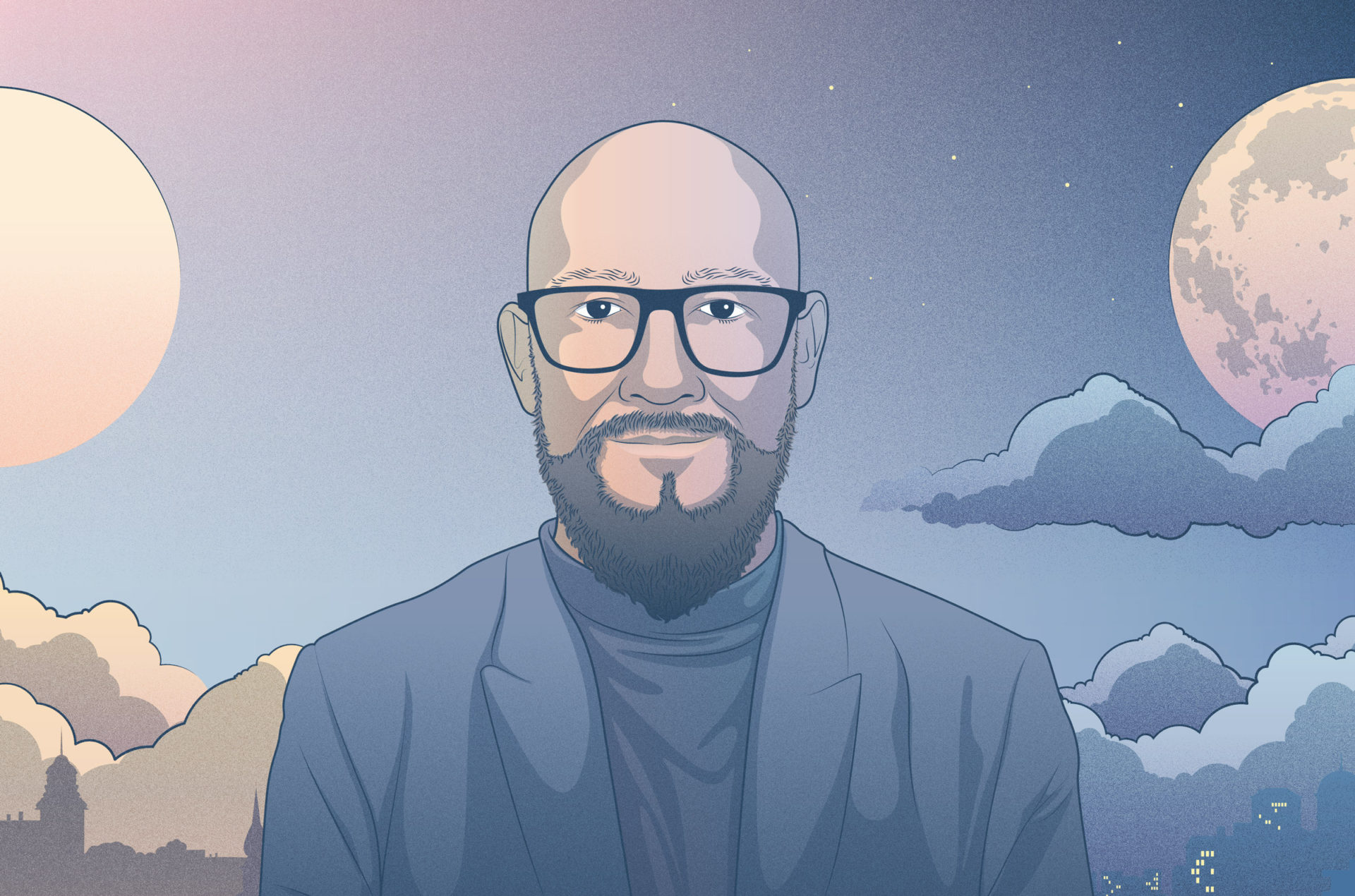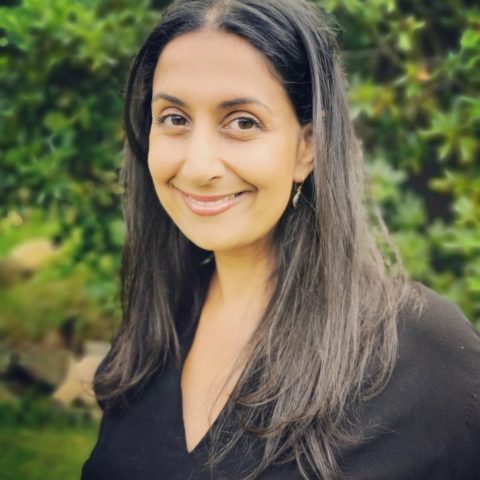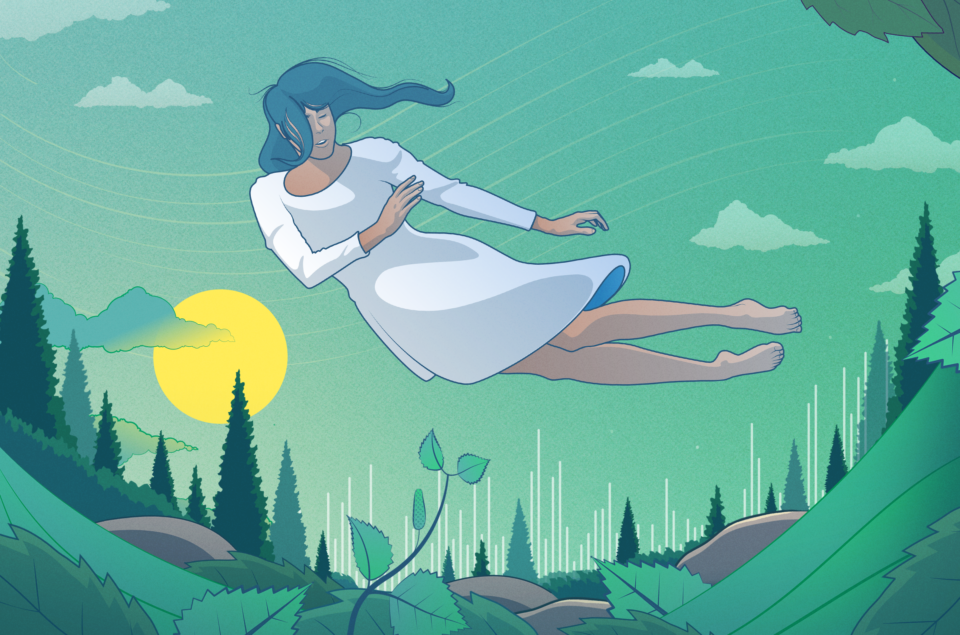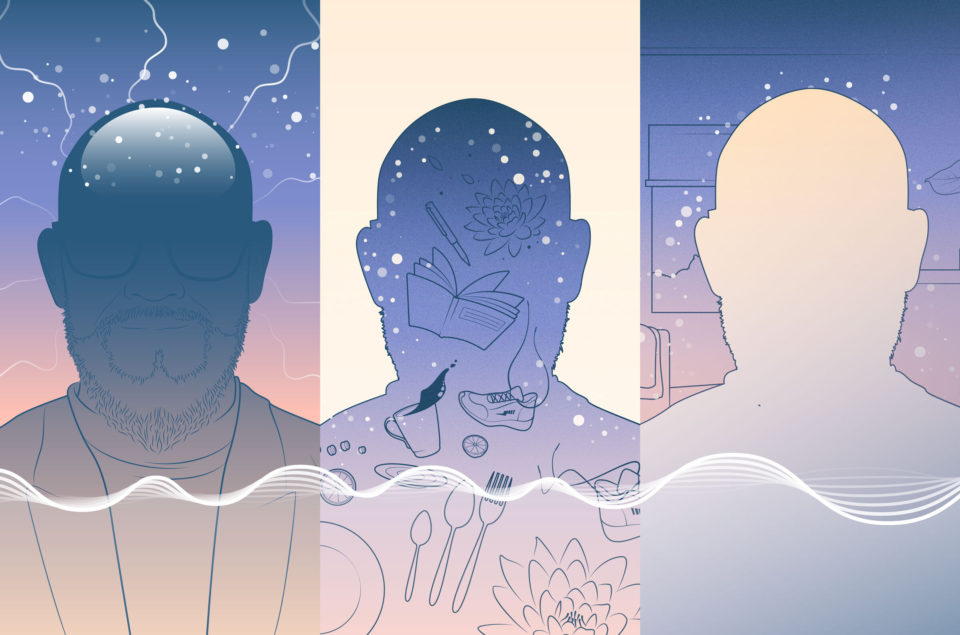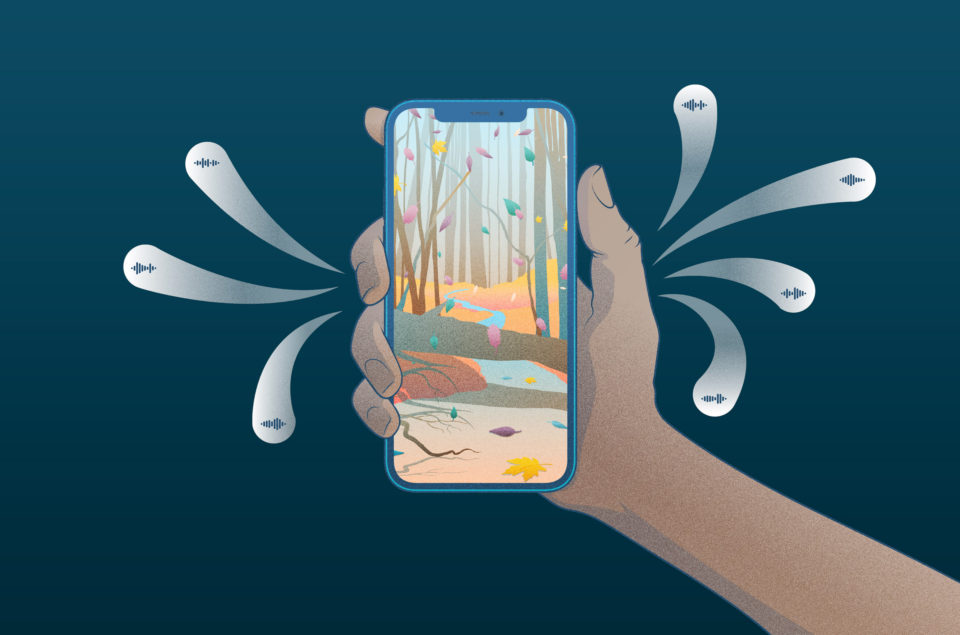Tom Middleton started his musical career as an Orchestral Cellist, then moved into composing Electronic Music, DJing and performing at festivals with audiences as large as 150,000 people. As his schedule got busier, his lifestyle became more erratic. The resulting sleep deprivation and insomnia took a toll on Tom’s body, mind and health until he collapsed from a burnout. He decided then and there to re-establish a healthier relationship with sleep.
We met with Tom to discuss the profound impact sleep has had on his journey to recovery and his collaboration with Sleep Cycle on the latest ‘Sleep Coaching Program’ Sleep Aid category, where Tom has created guides, sleep music and soundscapes to help users improve their sleep.
Q: You’re an award winning sound designer, pioneering electronic artist and functional music composer. Can you tell us more about yourself?
I am a deeply passionate musician, but I’m also a certified sleep science coach and trained in mental health first aid. I’ve toured the world and performed to millions, observing the positive and therapeutic health benefits of music and sound.
My scientific curiosity led me back to University to study the neuroscience and psychology of music. This helps inform my productions and create helpful content for the challenges we all face.
I create empathetic audio tools to help with pain management, anxiety reduction and resilience building. Sounds to motivate you, keep you focused, prolong flow state, improve your creativity and be as productive as possible. I create soundscapes to help you relax, to slow your mind and body down before bed so you can sleep deeply, wake up gently and naturally feel refreshed, energized and ready to take on the day.
Q: You’ve spoken of your personal health crisis and sleep proving to be a ‘salvation’. Can you tell us more?
I was hopping across time-zones for gigs, and barely setting foot in one country before it was time to catch a plane to the next. I suffered burnout and exhaustion in large part due to the relentless international touring schedule and circadian disruption from all the different time zones. This made me reassess my relationship with sleep, treating it as my top priority and recognizing it as a savior for my overall health.
Q: Why was sleep the main game changer in your wellness journey?
I learned that sleep is the foundation that your mental, emotional, physical health and wellbeing rests on. If you get your sleep right, the rest of the systems should naturally work for you as opposed to against you which happens when you’re sleep deprived.
Q: Can you walk us through your creative process when composing sleep music?
I like to take the listener on a journey, using familiarity to instill a sense of safety, and initially use melodic elements to capture the listener’s attention. I use harmony to build emotion, implied rhythms to help you slow down, and support it all with contextual sounds usually from nature. The tracks in this case are around 30 minutes, and typically sleep latency is around 20 minutes so the final 10 minutes is a gentle diminuendo where everything slowly fades to silence.
Ironically, the most difficult aspect of this is that as a composer/sound designer you have to be awake to make certain decisions. Imagine trying to make intentionally relaxing sleep inducing music whilst battling to stay awake and make creative decisions.
Q: What one thing would you suggest for people struggling to prioritize sleep?
Mindset. Consider it your free healthspan extension and happiness insurance policy.
Q: Your favorite soundtrack for sleep?
I’m quite happy listening to elemental nature sounds (geophony), particularly gentle wind through trees which psychologically makes a room feel more airy and light rain or soft waves which are nature’s perfect white noise masking solution. Add in some mesmerizing cicadas or frogs chorusing (biophony) and I’ll doze off into dreamland.
Q: Which feature on the Sleep Cycle app are you especially fond of?
I’m obviously drawn to the lovely soundscapes and guides within ‘Sleep Aid’ which I find very useful. But it’s the holistic appeal, combining all the most useful tools in one place, non-invasive tracking, statistics, and a journal supporting a gentle wake up program that makes it a winning combination.
Q: What’s your sleep chronotype?
Between a dolphin and a lion. I am more nocturnal but with a tendency to want to powernap in the afternoon. My mind will want to work late into the night.
Q: What habits are helpful in your daily routine to help you sleep better at night?
I try to stay consistent with sleep times and in particular wake-up times. I also make a point of soaking up daylight early in the day to ensure my circadian rhythm stays in sync. I also go to sleep in a chilly room, where the windows have been left open for a little while to let in fresh air. A drop in core body temperature of just 1 degree is known to help the body slow down into sleep mode.
Q: Your favorite sleep gadget?
My best investment is custom-fitted earplugs. I often say we have eyelids to shut out visual stimuli, but we don’t have earlids to shut out noise.
Q: Any parting advice for people who can’t make drastic lifestyle changes, such as shift workers or business travelers?
Consistency & Regularity – choose a wake-up time that works for you and stick to it every day.
—
With Sleep Cycle’s Sleep Aid library of meditations and music, soundscapes and sleep stories, our content helps users gently drift into sleep. The first installment to be released on the sleep coaching program contains ‘Tom’s Story’, ‘The Mind’ and beautifully composed sleep music. The subsequent installments include ‘The Body’, ‘The Room’ and further compositions. All soundscapes are exclusive to Sleep Cycle. Learn more about our collaboration with Tom Middleton on our press release.
